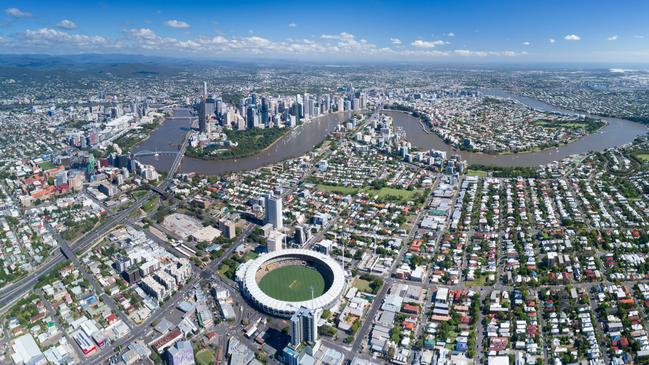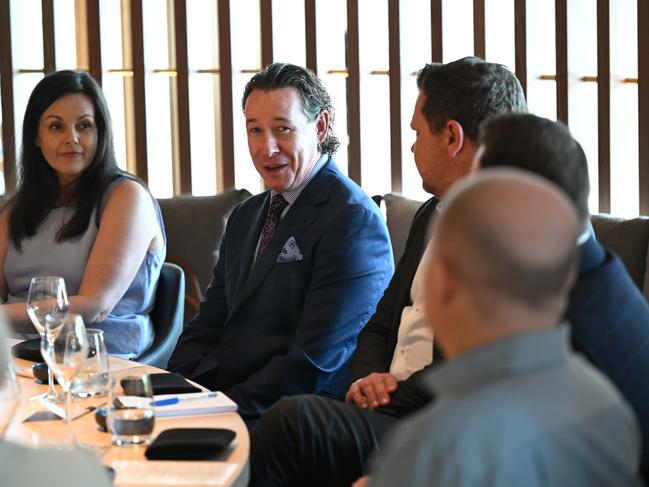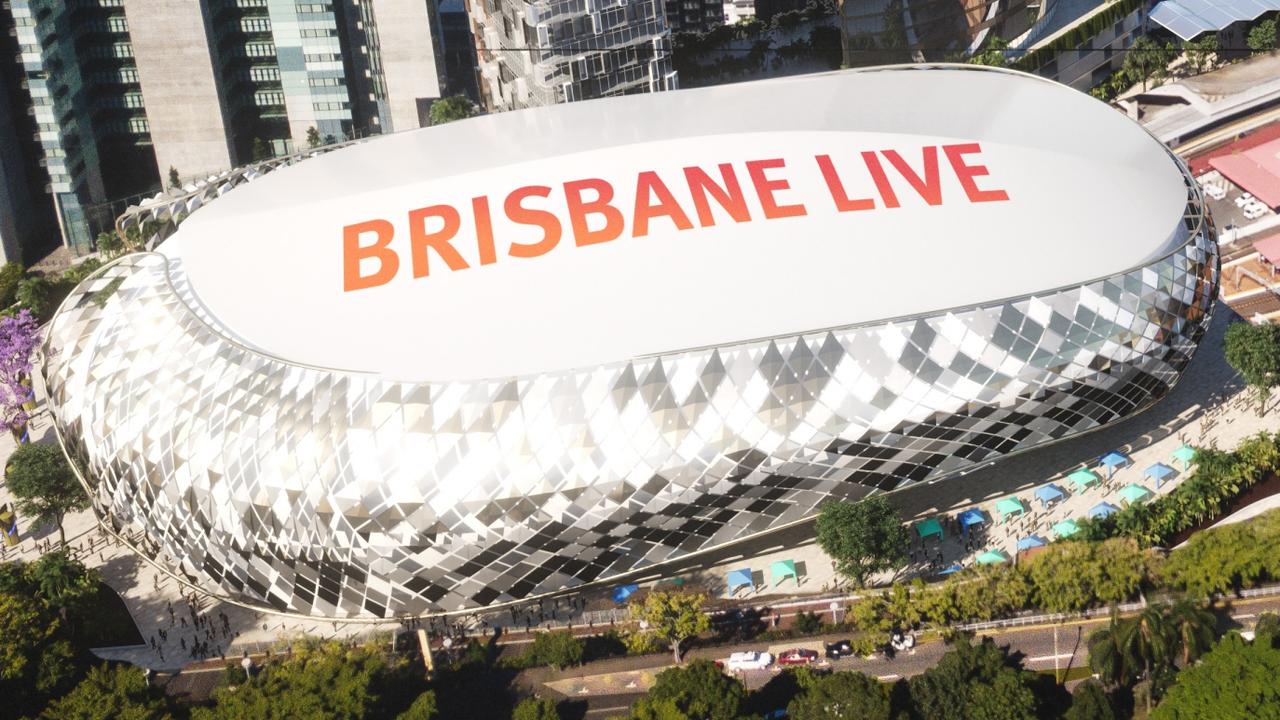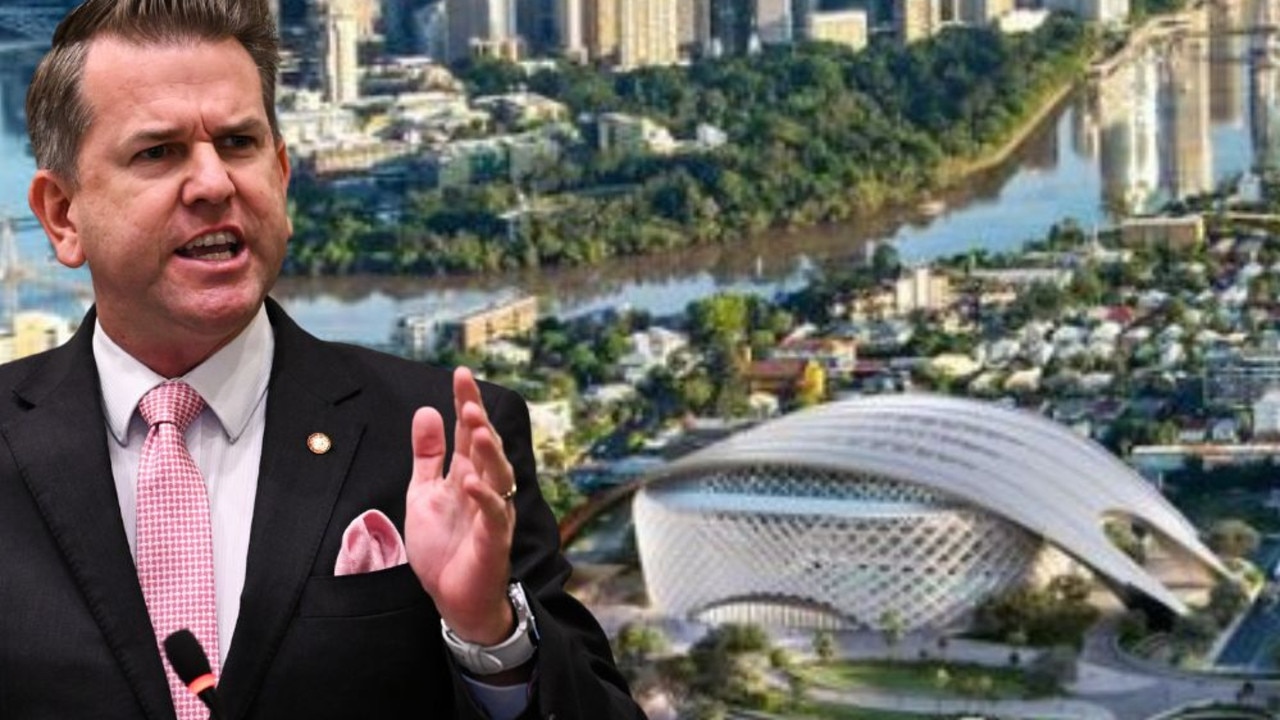Future Brisbane: City needs global brand recognition for 2032 Games
Brisbane is the greatest story never told, but one 2032 Olympic Games organisers want to put on the lips of every overseas visitor and investor.

Future QLD
Don't miss out on the headlines from Future QLD. Followed categories will be added to My News.
Brisbane is the greatest story never told, but one 2032 Olympic Games organisers want to put on the lips of every overseas visitor and investor.
The city’s lack of global brand recognition was identified as one of the biggest challenges Queensland had to overcome to ensure legacy success by a slew of business leaders and 2032 organisers, who gathered at The Courier-Mail’s Future Brisbane roundtable lunch.
Brisbane 2032 president Andrew Liveris said a “Queensland Incorporated” enterprise needed to be established to help bolster the economic benefit outside of just hosting the Olympics and the Paralympics.
HOW TO WATCH FUTURE BRISBANE LIVE
He said he wanted to use the Games to capture the attention of people who could invest anywhere in the world and get them to choose Queensland.
“We’re the greatest story never told and we need to actually communicate our story,” he said.
“I’ve got to create that competitive advantage.
“I want to put Brisbane on the lips of everyone in the world to visit and invest.”
Lord Mayor Adrian Schrinner said Queensland needed to have a “humming state capital” and people needed to be less shy about talking up how great Brisbane is.
This story is part of The Courier-Mail’s annual Future Brisbane series advocating for a focus on the right legacy outcomes from the hosting of the Brisbane 2032 Olympic and Paralympic Games. You can read all our coverage here
“It’s easy to try and compare ourselves to these global, mega cities and think there’s a gap that we need to fill there. But where there’s no gap is the lifestyle,” he said.
“I think one of the best ways that we can sell Brisbane is actually to talk to the people who recently arrived and get their perspective.”
The Star Brisbane CEO Daniel Finch said Brisbane was very “sophisticated” and not a second tier city, but it behaved like one.
“There is huge humility in this state, except for State of Origin.
“We don’t take that competitive stick the other 300 or so days a year outside of State of Origin.”
ASM Global CEO Harvey Lister said the city needed to target conference events that would build out a calendar over decades.
“Choosing great pieces of business that you can do regularly and not just once, and then you can’t have it for another 20 years, is really, where we’re heading everywhere, where we are in the world,” he said.
Cr Schrinner said as part of its lifestyle experience, there needed to be a concerted effort to improve the vitality of the CBD, the city’s “front door”.

“There are a lot of signs that Brisbane has bounced back better out of the pandemic than a lot of other places, but when you’ve got some major tenancies, for example, in the Queen Street Mall that are vacant, that’s an issue that we need to address,” he said.
The Committee of Brisbane CEO Jen Williams said leaders needed to bring forward growth infrastructure like improved network capacity and connectivity.
“I deeply worry about things like digital and what’s going to happen when we have, in a venue, 60,000 people sitting there all trying to upload their videos onto Instagram at the same time. What happens to the network?” she said.
“I think that there’s a huge legacy opportunity for Brisbane to fix those things.”
Brisbane Airport CEO Gert-Jan de Graaff said with a growing population and the city being sold to the world over the next years, more ground transport options like the Brisbane Metro and buses would be needed to get people to and from the precinct.
“We will be able to further develop our air connections,” he said.
“We cannot have people driving to and from the airport until the end of time.”
Transurban general manager Theuns Lloyd said more major road infrastructure project were needed through more private-public partnerships, with a market there for more tunnels.
“There are big super funds out there that are looking for good investment, with reasonable returns, with low sovereign and risk, so why not invest in SEQ?” he said.
The University of Queensland Vice-Chancellor and President Professor Deborah Terry said Brisbane should strive to become a base for more biotechnology companies.
“In 2032 when the world’s eyes are on Brisbane, we want them to see a really successful Games, but we want them to appreciate that this is a smart city … and we should be showcasing institutions like ours,” she said.
Quandamooka man and Brisbane 2032 Legacy Deputy Chair Cameron Cameron Costello said the Games were positioned to be one of the greatest reconciliation events ever.



